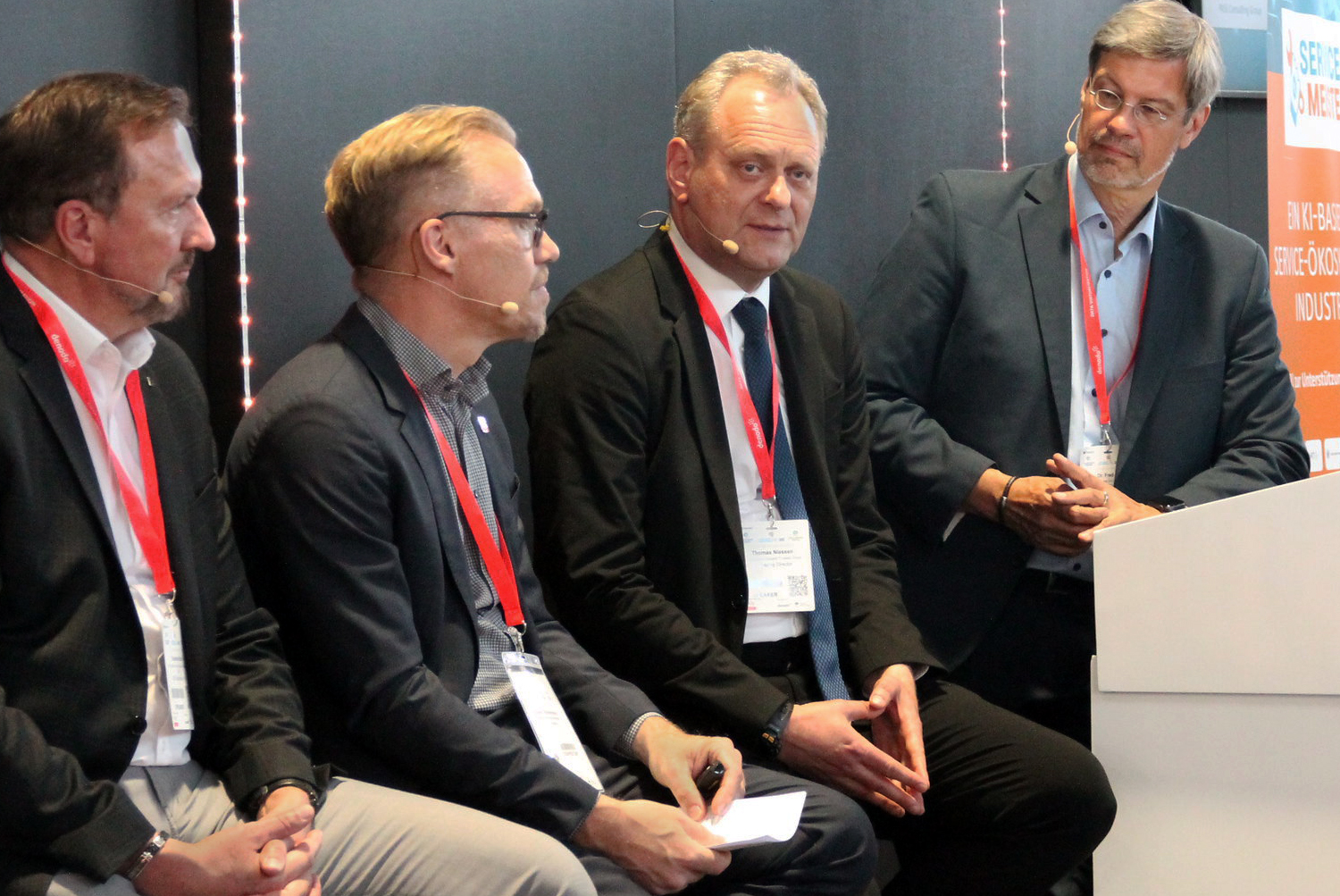
By Nils Klute, IT Editor and Project Manager Communication Cloud Services at EuroCloud Germany – eco Association
Not only manufacturing first-class products, but also realising data-based business models – Service-Meister discussed how SMEs can benefit from the service economy at Cloud Expo Europe Frankfurt.
Whether turning, drilling or milling, huge high-tech plants or delicate mechanics – Germany’s industry primarily produces engineering services of world renown. While SMEs are ahead in this respect, they are falling behind when data comes into the business. According to a recent study by the Cologne Institute for Economic Research (IW Cologne), the local data economy is hardly picking up speed. Firstly, because the ability to manage data efficiently is not widespread among companies and on the other hand, companies see “data more as a tool for internal optimisation and not as a source of revenue”. For many, it is “currently not obvious how they can integrate the use of data into their business model”, Barbara Engels and Jan Büchel from IW Cologne state.
Make digital services the core of your own offering: “SMEs by no means lack the data basis for this,” said Dr Fred Jopp, AI specialist from PASS Consulting Group, “but they do lack know-how.” Knowledge such as that developed by the Service-Meister consortium for industrial service with artificial intelligence (AI). Jopp and other experts now classified the results of the AI project in a panel discussion at Cloud Expo Europe Frankfurt.
Prepare data and use it economically
“Even more conservative and traditional machine builders have digitalised their processes and are optimising procedures with Digital Twins”, said Thomas Niessen, Managing Director of the Trusted Cloud Competence Network. “However, companies are struggling with data-based revenue ideas,” Niessen said. The fact that data does not yet generate revenue in many places is partly because it is, in a sense, an overburden: “This is a by-product that cannot be used directly in an economic way,” Niessen said.
Handwritten serial numbers instead of barcodes, paperwork instead of digital filing or Excel lists instead of structured knowledge management systems: “Data is also often hardly systematised,” said Stephan Boch, Senior Business Development Manager at KEB Automation. “And regardless of whether it’s analogue or digital, companies are accumulating more and more data centrally,” Jopp said, “in the end, the sheer volume is hard to make sense of.” What matters: “Companies need to structure data,” Boch said. Jopp: “Large companies rely on data stewards to take care of preparing information so that it can be used economically.”
Platforms and ecosystems: Adapt and stay successful
Digitise manufacturing steps to not only produce data-based but to benefit from new revenue streams: “Legal issues, in particular, are slowing down business models,” Niessen stated. According to the Cologne Institute for Economic Research (IW), 68 per cent of the industrial companies surveyed do not share their data for this reason – 22 per cent, on the other hand, cite technical concerns. However, “legal pitfalls are often more of a perceived problem,” said Niessen, “whoever takes a closer look finds out that there are, indeed, good solutions to process data in a legally compliant way.”
Furthermore: “Use existing open platforms and ecosystems,” Jopp said. Take Service-Meister, for example: Teams from SMEs and IT partners have supported typical processes in maintenance and repair with AI. This has resulted in blueprints for data-based and smart solutions that the consortium is now providing to third parties for AI entry. “Such best practices serve as a template for SMEs,” Jopp said. Finally, it is clear that “those who adapt remain successful.”
Via Gaia-X confidently and safely into the service economy
What else is needed to be successful with with data products:?“Digital sovereignty,” Niessen said. “So far, there is a lack of standards and technologies to regulate, for example, who is allowed to do what with which data.” “With the connected data infrastructure that the Gaia-X initiative is working on, a solution is in sight,” Jopp said. “If Gaia-X succeeds in addressing legal, technological and organisational concerns, then data should also flow across the board to “give rise to new business models.”
What that might look like, for example: If manufacturers, suppliers or service providers exchange their data in a sovereign and legally secure manner via certified Gaia-X services and nodes, then new business opportunities in the service economy will also arise everywhere along the value chain. Consider, for example, the total cost of ownership: If you purchase, operate and keep available plant and machinery, this term covers all the expenses incurred in the process. User companies are looking for solutions to reduce these costs. “Service-based business models are the solution,” said Boch, “and data is the basis. Equipment can be used with less maintenance, more efficiently and with a longer service life. The reason is, “those who build plants and machines primarily to sell them fail to realise the opportunities that lie in the services business,” said Boch. Cloud Expo Europe Frankfurt took place on 11 and 12 May 2022.
Image credits: eco
You liked this article? Then subscribe to our newsletter and receive regular updates on similar topics and the Project Service-Meister and discuss with us about this and similar exciting topics in our LinkedIn Group.
